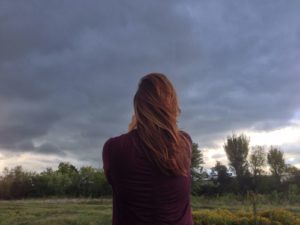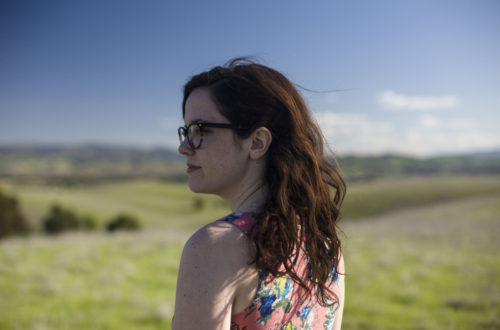
Letters to Emma #4
This is the fourth in a series of posts I plan to write about grief and my experience of it after the death of my husband Paul 4½ years ago. I will write each post in the form of a letter—a letter to Emma. I’m doing it this way for two reasons: visualising an audience of one will help me to write about what is still a difficult subject, and Emma was the one who first asked me to consider writing something on this topic. It’s my hope and prayer that by blogging about my personal experience of death and grief, I might ease the journey for someone else.
Hello Emma
It’s made such a difference to have you there as my audience; somehow, focusing on just one familiar friend seems to require less emotional energy. I took a little break after the last letter, because remembering has meant re-living, and I was exhausted. But, now that I’ve had a break I think I need to keep going. I suspect it will only get harder, if I don’t. I’m not sure how many more letters there will be, but as long as you’re happy to come along for the ride again, I’d be glad of your company.
Today I met up with a dear friend I’ve known for many years and from whom I’ve learned so much. Just spending time with her is a blessing, but as we walked and talked in the late winter sunshine, sensing the jasmine scent of spring, her willingness to talk with me about Paul was a true gift. I’m very conscious that, for others, remembering Paul requires more intentional effort than it does for me. Without the photos and other physical prompts that I have and without the memories of my shared life with him, it’s not natural for them to be as mindful of him as I am—and that’s how it should be. But it does mean that when others slip comfortably into conversation about Paul with me, it’s a loving balm for my soul and it eases my fear of forgetting.
And 4½ years on, the friends who still remember the difficult and painful days are the ones who continue to give me gifts of particular beauty, just because they remember. Whether hugs or cards, text messages, emails or flowers, each loving gesture recognises the deep wound in my heart and acknowledges the inadequacy of the scar tissue now protecting it.
Emma, I doubt I will ever forget the ache and sting of the ‘firsts’—the first week, month and year without Paul, the first wedding anniversary, my birthday, the first Father’s Day, the kids’ birthdays, the first Christmas, Paul’s birthday—or the dread of anticipation that was sometimes worse than the day itself. There were so many, and the firsts were followed relentlessly by seconds, thirds and fourths, as each year brought another round of remembering days.

The first wedding anniversary without Paul was a sharp, bitter-cold June day, overcast and windy, so unlike the balmy, sunlit day when we were married 24 years before. All I wanted was to be alone with my sorrow. I took the train into the city centre, where no one would know me, having a vague plan to eat lunch at the harbour-side hotel where we had celebrated our 20th anniversary. The memories of that wonderful weekend remained strong, so when I rounded the corner and discovered the hotel shrouded in scaffolding and completely closed, I was stunned.
I wandered away in the drizzling rain, disoriented and baffled, trying not to sob and trying desperately to work out what to do. I have no recollection of what I did about lunch or whether I ate at all. My abiding memory of that winter’s afternoon is of walking, walking, walking, and then sitting on a wooden bench with the biting wind tugging at my coat, watching the whitecaps on the sea, talking to Paul through tears.
But Emma, as hard as it was, that day gave me further searing proof that God would help me survive even the bleakest, loneliest days. He was teaching me not to be afraid—of pain, of sorrow, of being alone, of whatever overwhelmed me—but to cling to him, my rock and my salvation (Ps 62:1).
I still spend time alone on our wedding anniversary. If I can, I walk through the bushland in the National Park to where Paul’s ashes lie scattered, at a secluded spot looking out over a deep river-cut valley and sandstone ridges clad with towering eucalypts. Weather and small creatures will have scattered his ashes even further by now, but as I sit there—on a huge boulder, perhaps deposited by some ancient glacier—I sometimes think of Ezekiel’s valley of dry, lifeless bones or the apostle Paul’s resounding, resurrection trumpet. Each reminds me of the incomprehensible power of God to bring life to the dead and the glorious hope of heaven. And while solitude is beneficial on this remembering day, I now find that it needs to be balanced with the company of family and friends once the darkness falls.
And that’s how it goes. As the kids and I find ways to mark the hard days that remind us that Paul is not with us, and as we build new family traditions into the rhythm of each year, we do so knowing that they must necessarily remain fluid and flexible. For we know how life can change in an instant—for good or for bad—and that what lies around the next corner can be so unexpected. The only constant of which we can be certain, and the only safe harbour in which we can always find shelter, is our heavenly Father whose faithful promises and loving purposes never change and will never fail.
It’s a shorter letter this time, dear friend, but my guess is that means there will be more. Thanks again for your company.
Featured image: Photo by Prixel Creative | Lightstock.com




